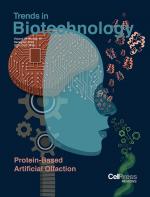Antibody-Conjugated Nanoparticles for Therapeutic Applications
- Citation:
- Cardoso, MM, Peça IN, Roque ACA. 2012. Antibody-Conjugated Nanoparticles for Therapeutic Applications. Current Medicinal Chemistry. 19(19):3103-3127.
Abstract:
A great challenge to clinical development is the delivery of chemotherapeutic agents, known to cause severe toxic effects, directly to diseased sites which increase the therapeutic index whilst minimizing off-target side effects. Antibody-conjugated nanoparticles offer great opportunities to overcome these limitations in therapeutics. They combine the advantages given by the nanoparticles with the ability to bind to their target with high affinity and improve cell penetration given by the antibodies. This specialized vehicle, that can encapsulate several chemotherapeutic agents, can be engineered to possess the desirable properties, allowing overcoming the successive physiological conditions and to cross biological barriers and reach a specific tissue or cell. Moreover, antibody-conjugated nanoparticles have shown the ability to be internalized through receptor-mediated endocytosis and accumulate in cells without being recognized by the P-glycoprotein, one of the main mediators of multi-drug resistance, resulting in an increase in the intracellular concentration of drugs. Also, progress in antibody engineering has allowed the manipulation of the basic antibody structure for raising and tailoring specificity and functionality. This review explores recent developments on active drug targeting by nanoparticles functionalized with monoclonal antibodies (polymeric micelles, liposomes and polymeric nanoparticles) and summarizes the opportunities of these targeting strategies in the therapy of serious diseases (cancer, inflammatory diseases, infectious diseases, and thrombosis).







